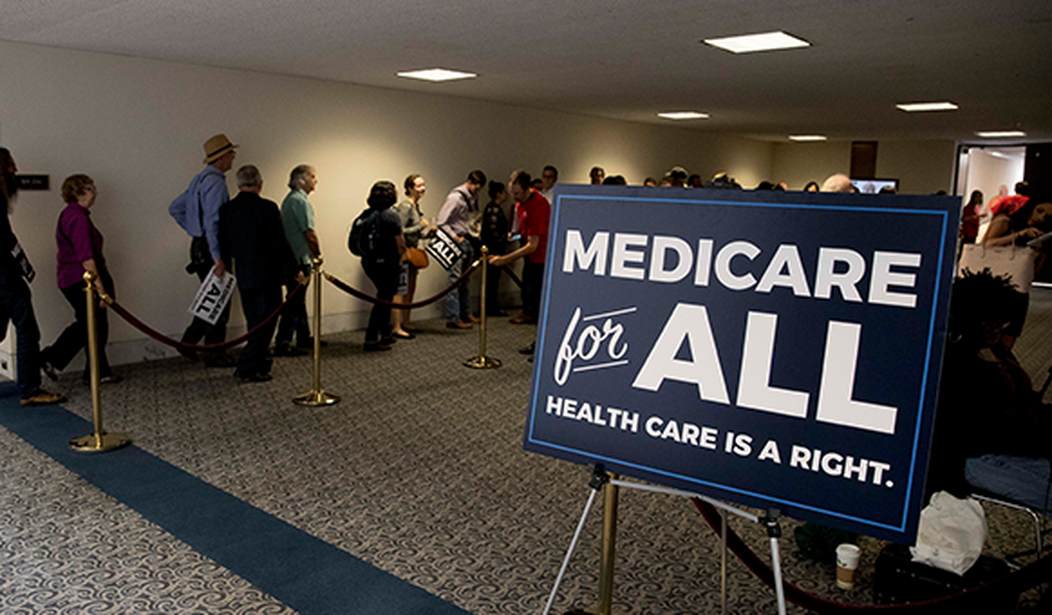Most Americans equate Medicare with government run medical care. What is surprising to learn is that within this system, there currently exists a free market alternative. It is a little known program called Medicare Medical Savings Accounts (MSAs). These plans combine the protection of a high-deductible Medicare insurance plan with the autonomy of a patient controlled Medicare funded account. They are available to enrollees through the very popular Medicare Advantage plans, which 40% of Medicare recipients are currently enrolled in.
An MSA is funded by Medicare but controlled by the patient and works just like traditional Health Savings Accounts. MSA plans put a set amount of money (Ex: ~$2,500 annually) into an account to which the patient can add their own funds if desired. MSAs can be used to pay medical expenses or, if not used fully in that year, can be invested like a 401K and grow tax-free rolling over into future years for use against out-of-pocket expenses.
Medicare MSAs are combined with high-deductible Medicare insurance plans. The MSA is used for expenses below the deductible. An example of how a plan could be structured is that a Medicare MSA plan may have a $4,000 deductible, above which the insurance pays for the medical care. Under the deductible, the expenses are paid by current year Medicare contributions to the MSA account, funds rolled over from unused MSA dollars from prior years including any growth they had from being invested or any personal contributions made by the recipient to the MSA account. Thus, given this example, in a year with no roll-over MSA funds, a patient could find themselves liable for up to $1,500 in medical expenses ($4,000 deductible - $2,500 Medicare MSA contribution). This is likely comparable to the out of pocket expenses a patient could incur under the traditional Medicare system via copayments.
However, in years when minimal medical expenses occur and/or the patient uses the MSA funds diligently by shopping for the best pricing on services, the unused MSA funds roll over into the next year. These “savings” can be added to the current year Medicare MSA contribution, allowing the patient to develop a fund of wealth that can be applied to any future medical expenses - potentially driving their out of pocket expenses down to zero. Basically, a patient can pay for future medical expenses with the savings they achieve on current medical expenses. Thus, the patient is rewarded for being a good steward of those resources.
Recommended
MSA funds can also be used to cover expenses not traditionally covered by Medicare such as dental care, optometry and even long-term care expenses.
Aside from saving patients money, Medicare MSAs return control of how and where healthcare dollars are spent. Medical decision making is taken out of the hands of unaccountable bureaucrats and returned to patients, where they belong.
MSAs may also save the system money and keep Medicare solvent by empowering Medicare recipients to become cost conscious medical consumers. Opponents of this program bring up the inability of patients to shop for care in extreme emergency situations but the reality is that these scenarios constitute a very small part of healthcare. The Council of Economic Advisers reported that up to 90% of medical transactions are “shoppable”. So as an example, a cost conscious patient needing an MRI may be able to save thousands of dollars by having it done at the better priced imaging center instead of the more costly hospital.
The biggest disadvantage involving MSA plans is their relative lack of availability. In 2018, only 5,000 Medicare Advantage enrollees were enrolled in MSA plans. As we move into an election year, legislative action regarding healthcare reform becomes less likely. However, the Trump Administration can promote this already established program and encourage seniors to take advantage of it, furthering their agenda to reform healthcare by providing more free market options.
Chad Savage, M.D. (info@d4pcfoundation.org), is a policy fellow at the Docs 4 Patient Care Foundation and the founder of the DPC practice YourChoice Direct Care in Brighton, Michigan.

























Join the conversation as a VIP Member